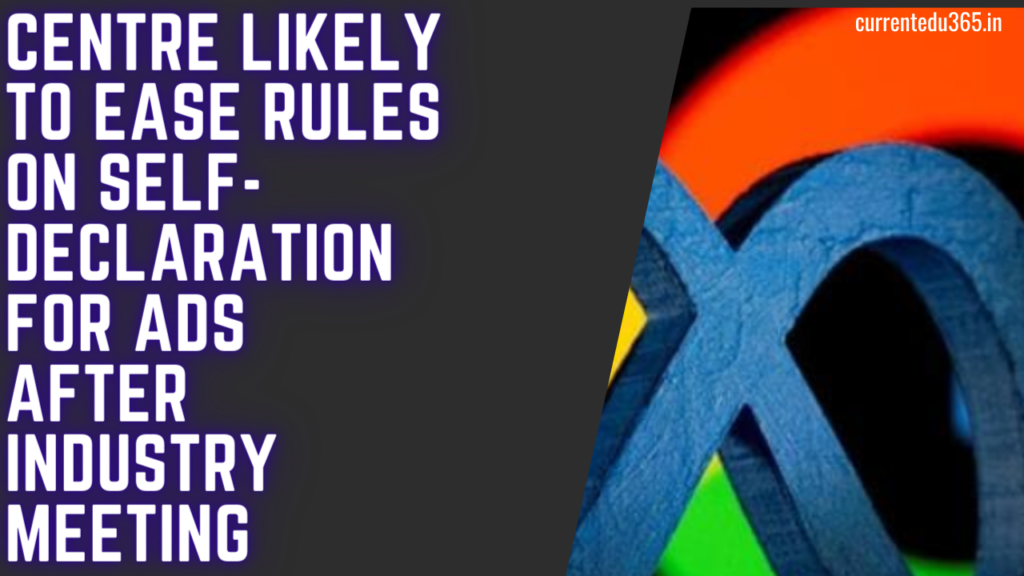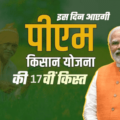The Ministry of Information and Broadcasting is likely to reduce the sectors requiring self-declaration certificates for ads following industry feedback.The ministry of information and broadcasting (MIB) is likely to reduce the sectors for which self-declaration certificates (SDCs) for advertisements required.Centre likely to ease rules
The decision was taken following a meeting with industry associations and digital advertising platforms, including Google and Meta (Facebook) on Tuesday.The ministry is also considering how to simplify the process for obtaining this certificate after hearing complaints from industry associations, five people aware of the matter told HT on the condition of anonymity.

Read More- INDIA is now the fifth largest economy in the world ,says President Murmu.
In the meeting, the industry associations told MIB that the requirement for SDCs was adversely affecting the advertising industry.
The meeting, chaired by I&B secretary Sanjay Jaju, saw participation from the Department of Consumer Affairs. Representatives from multiple industry associations, including Indian Broadcasting and Digital Foundation (IBDF), News Broadcasters and Digital Association (NBDA), Indian Society of Advertisers (ISA), Advertising Agencies Association of India (AAAI), Advertising Standards Council of India (ASCI), Internet and Mobile Association of India (IAMAI), Digital News Publishers Association (DNPA), Indian Newspaper Society (INS), Association of Radio Operators for India (AROI), FICCI, CII, Google and Meta attended the meeting.
Different group companies of HT Media are a part of INS, DNPA, and AROI.The Supreme Court, in its May7 order in the case of misleading ads related to health and food products by Patanjali, had directed that before the ad was printed, aired or displayed, the advertiser or the advertising agency must submit a self-declaration to the MIB’s Broadcast Seva Portal before it is aired.
For print ads and ads on the internet, the apex court had directed MIB to create a new portal within four weeks. “No advertisements shall be permitted to be run on the relevant channels and/or in the print media/internet without uploading the self-declaration as directed above,” the court had ordered.
Subsequently, on June 3, the MIB, to comply with the apex court’s directive, had directed all advertisers to obtain self-declaration certificates for each advertisement from the Broadcast Seva Portal for all radio and television ads, and from the Press Council of India’s portal for print and internet/digital advertisements.In a meeting on June 11, the industry associations had asked for the June 18 deadline to be extended but the MIB had said that they were also constrained by the apex court’s order.The people cited above said that June 25 meeting was “constructive” and the MIB officials were also in “problem-solving mode”.
In the meeting, the MIB told the industry representatives that it would do whatever it can to simplify the process, and would seek the opinion of the additional solicitor general on whether to revise the directive, or make submissions to that effect to the apex court.
At least one industry association, IAMAI, has already filed an intervention in the Patanjali case, asking the SC to scrap the SDC requirement.Onerous workflow likely to be easedThe industry associations told the MIB that in the week since the SDC regime came into effect, there has been a reduction in number of ads being placed, and multiple campaigns had been cancelled by brands and agencies. Part of it is because of the lack of clarity around the requirements, and part of it is due to the scale at which this needs to be done.
They told the MIB that companies are still figuring out who would be the person within their entity to submit the SDC as the “authorised person”.The ministry had given advertisers time until June 18 to familiarise themselves with the portals. The move had drawn criticism and concern from advertising, publishing, broadcast and print industries given the onerous compliance burden.
In a subsequent advisory on June 5 on the matter that was issued to all private TV channels, radio stations, newspapers, online news publishers, and streaming platforms, the MIB had said that the broadcasters and publishers are responsible for ensuring that advertisers have submitted the SDC.
This means that all campaigns, ads and creatives published across the internet, TV, radio and print have to have an individual SDC. This number, the industry associations said, runs into millions. The industry associations told MIB that the portals frequently kept crashing because of the high volume, especially during peak hours. For instance, on the Broadcast Seva Portal, between June 6 and June 25, 31,570 SDCs had been generated.Centre likely to ease rules
The industry associations suggested that instead of requiring the certificate for every ad, the advertisers could be required to submit the SDC annually.
The associations also said that the SDC requirement imposes a disproportionate compliance burden on MSMEs who run digital ads with low ticket sizes and may not have the resources or awareness to comply with this. At least one industry association said that small advertisers, especially in smaller towns and villages, do not even have access to the internet and thus may not be able to generate the SDC.The scope could be reduced to food and health productsIn the June 5 advisory, the MIB had removed classifieds, personal advertisements, statutory ads, public information notices, tenders and ads related to public functions from requiring the SDC. However, classified ads related to consumer products and services will need SDC. The industry associations asked MIB that if these categories of ads could be exempted, why could others not be.On the Broadcast Seva Portal, HT saw multiple test SDCs and certifications for tenders and e-tenders.The industry associations, on Tuesday, told MIB that the kinds of consumer products that require the SDC should remain limited to health and food products, as was perhaps intended by the apex court in its order. At least one participant told MIB that the harms arising out of false claims related to a technology product could not be compared to the harms arising out of misleading claims about a food product.At least one association also said that there are existing legal frameworks to address the issues of misleading ads in other sectors, such as by ASCI and the Consumer Protection Act. Sectoral regulators, such as the FSSAI, already have separate guidelines for advertising. They asked if another framework was even required.Centre likely to ease rules
Source:- hindustan times.




Pingback: Yes Bank lays off 500 employees to cut costs, company to restructure internally - CurrentEdu365